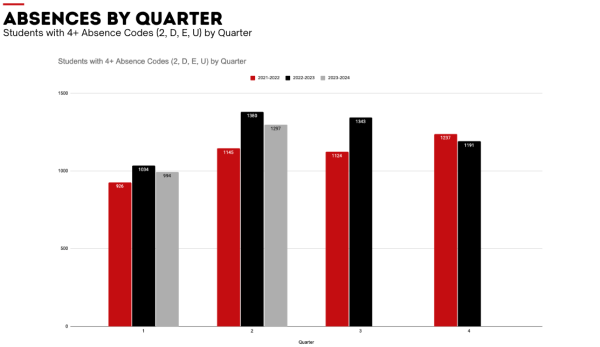Café Express changes cause discontent
As the school year rumbles in, so do the stomachs of Westside students. Most students head to the Café Express to fuel their hunger, except there’s one problem: most students’ favorite snacks are gone, due to high sodium, sugar and calorie levels, and have been replaced with new, healthier snacks.
Jackie Cambridge, the Café Express Manager, has had to introduce changes, including transitioning from Gatorade to G2, changing the cookies to whole grain and removing much of the popular candy.
“The government forced us to make these changes,” Cambridge said. “We can only use products that our suppliers give us and that meet the regulations.”
The United States Department of Agriculture (USDA) recently came out with new nutrition standards for snack foods and beverages sold to students during the school day. The regulations include reduced calorie, sodium, sugar, trans fat and saturated fat counts. The regulations also require whole grain usage.
When compared to last year, sales have fallen significantly in the Café Express, according to Cambridge.
“A lot of seniors and juniors are going out to eat, I’ve noticed, instead of eating the school food,” senior Shakat Chaudhary said.
Despite the health regulations being put into effect, students are still eating unhealthily.
“I agree with the fact that we could all eat healthier, but I think education is the key, not just pulling things from the school,” Cambridge said.
In the cafeteria, there have also been some dramatic changes. Since the “must-have-one-fruit” rule implemented two years ago, the government has pushed whole-grain-rich foods onto cafeteria plates, along with low-calorie, low-fat and low-sodium snacks.
“I understand the concept of what they want to do, I just think they went too far, too fast,” Cambridge said.
Although some students have seen this as a negative adjustment, Westside’s Executive Chef, Sharon Schaefer, thinks it will be have a positive affect in the long run.
“I would say this is the largest implementation that’s motivated by health concerns [in high school lunches],” Schaefer said. “The obesity and medical risk factors that come with obesity are considered to be a public health epidemic by the federal government.”
The USDA believes this generation of children will be the first generation of children with a shorter lifespan than their parents. This hasn’t happened ever in the history of the United States.
“Do I think teenagers should have to eat like this? No,” Schaefer said. “I think the responsibility of a parent is to teach their children how to be healthy.”
The last change that has been remotely close to this magnitude was the switch from regular pop to diet pop four years ago.
“I just think [the students] miss their old store and everything that it carried,” Cambridge said.
Your donation will support the student journalists of Omaha Westside High School. Your contribution will allow us to purchase equipment and cover our annual website hosting costs.












